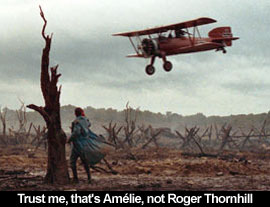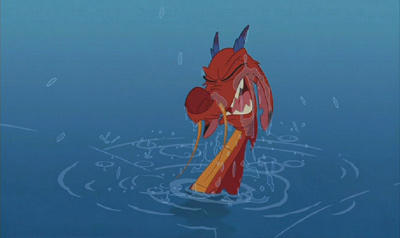Lemony Snicket’s A Series of Unfortunate Events (2004)
A Series of Unfortunate Events
**½/****
starring Jim Carrey, Jude Law, Liam Aiken, Emily Browning
screenplay by Robert Gordon, based on the books The Bad Beginning, The Reptile Room, and The Wide Window by "Lemony Snicket"
directed by Brad Silberling
by Walter Chaw The best children's entertainments accentuate a child's strengths, encouraging the pursuit of aptitude and bliss instead of impossible pipe dreams. It's the lesson of The Incredibles, one of the bravest, most subversive films the year–and it seems to be the lesson of Lemony Snicket's A Series of Unfortunate Events as well until the picture caves in to kid-flick conventions and worse. But while it's humming along with the freshly-orphaned Baudelaires–Violet (Emily Browning), Klaus (Liam Aiken), and little Sunny (Kara and Shelby Hoffman)–doing what they do best (Violet the engineer, Klaus the reader, Sunny the biter), Lemony Snicket, with its gothic sets and grotesque gallery of rogues, offers up a brilliant antidote to the saccharine blather of traditional holiday fare. Fleetingly effective or no, it's a shot of insulin in a season that generally offers up bloated prestige items for the grown-ups and freakishly genial, accidentally perverse fare for the kiddies.

 by Walter Chaw
by Walter Chaw by Bill Chambers
by Bill Chambers